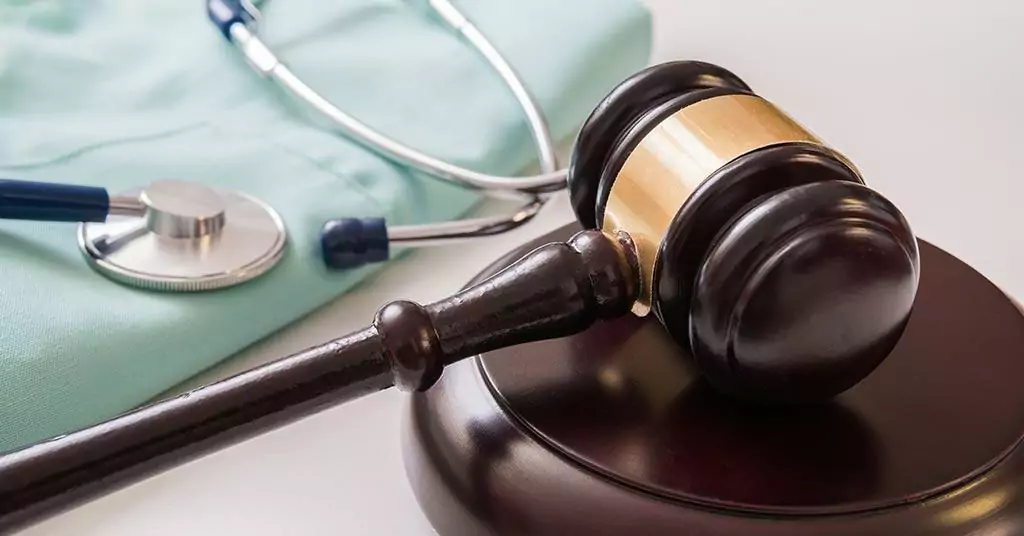Residents across Rivers, Akwa Ibom, and Cross River states have raised alarm over the rising cases of medical misdiagnosis, calling for stricter regulations and enforcement of tougher sanctions to curb the trend. Many victims and medical experts have attributed the problem to quackery, inadequate training, poor diagnostic tools, and systemic failures in the healthcare system.
Several individuals narrated harrowing experiences of how wrong diagnoses led to severe health complications and, in some cases, death.
Faith Onovo, a mother of five from Port Harcourt, recounted how she sought treatment for persistent headaches and blurry vision at a reputable private hospital. After undergoing several tests, she was diagnosed with migraines and given medication. However, her symptoms worsened, prompting her to seek a second opinion.
“I was later diagnosed with a brain tumor, but by then, it was too late as the tumor had progressed to an inoperable stage,” she lamented.
Similarly, Chinda Iwhnurohna, 48, narrated the tragic ordeal of his wife, Mercy, who suffered from severe stomach pain. A doctor initially diagnosed her with an ulcer and prescribed medication, but the pain persisted.
“After months of suffering, we discovered it was actually appendicitis, which had already ruptured. Sadly, she did not survive the surgery,” he said.
Another heart-wrenching case was that of Monalisa Tamuno, a boutique owner in Port Harcourt, who spoke of the financial and emotional strain her family endured following the misdiagnosis of her late brother’s heart condition.
“We spent everything we had on treatments and surgeries, believing he had a heart problem, only to later find out it was pulmonary embolism. By then, we lost him. Now, we are not just mourning him; we are also struggling to survive financially,” she said.
In Akwa Ibom, Bassey Effiong shared how he was wrongly diagnosed and treated for hypertension for three years, only to later discover he had Parkinson’s disease.
“The experience was very ugly. I spent a lot of money treating hypertension, only to find out it was Parkinson’s disease. Hospitals must be properly equipped, and the right professionals must be in charge,” he urged.
Medical professionals have identified quackery, obsolete equipment, and weak regulatory frameworks as key contributors to diagnostic errors. Dr. Chinazor James, a medical consultant at the University of Port Harcourt Teaching Hospital (UPTH), stressed that many unregistered medical laboratories are operated by unqualified personnel, further compounding the problem.
“Healthcare regulators must ensure that all medical laboratories are duly registered and closely monitored. The government must ensure that only trained professionals run these facilities, as accuracy, precision, and reproducibility in medical laboratory results are crucial,” she stated.
Dr. Olugbenga Akinyemi warned that weak oversight had turned Nigeria into a dumping ground for substandard medical kits, diagnostic equipment, and chemical reagents.
“These low-quality medical supplies are often purchased and used even by well-intentioned practitioners, leading to inaccurate test results, misdiagnosis, and ultimately, fatal consequences,” he said, calling for routine inspections of medical laboratories and stricter regulations.
George Horsfall, a laboratory scientist, emphasized the need for national accreditation standards for medical laboratories to ensure consistency and reliability in test results.
Call for Systemic Reforms
Dr. Effiong Akpan, a consultant nephrologist at the University of Uyo Teaching Hospital (UUTH), described wrong diagnosis as a crime against humanity. He criticized the “trial and error” approach adopted by some medical professionals and emphasized the need for precision in medical diagnostics to prevent unnecessary deaths and financial burdens.
“Human life is not like a machine that can be repaired or replaced. Wrong diagnosis and misinterpretation of test results expose patients to unnecessary anxiety, which can lead to hypertension, depression, and even suicidal tendencies,” Akpan warned.
Dr. Aniekan Peter, Akwa Ibom Chairman of the Nigerian Medical Association (NMA), blamed the prevalence of misdiagnosis largely on quackery, stating that individuals with no medical background are infiltrating the profession.
“We have people out there pretending to be medical doctors when they have no business in the medical field. They are harming patients, and we must fight this menace,” he asserted.
In Cross River, Johnson Udeh, an ex-patient of the University of Calabar Teaching Hospital (UCTH), decried the poor attitude of health workers, describing it as one of the biggest challenges in the sector.
“I have seen preferential treatment in hospitals. If you know a top management staff, you get treated; if not, you wait endlessly. Patients have been neglected, with some doctors referring them to their personal clinics instead of treating them at the hospital,” he alleged.
Similarly, Joseph Edet, a civil servant, recounted how he was asked to buy fuel to power a generator for his wife’s surgery after paying for the procedure.
“They didn’t provide fuel, and the surgery was delayed. It was a shocking experience,” he said.
Experts are advocating urgent reforms, including capacity building for healthcare workers, improved diagnostic techniques, and the provision of up-to-date medical kits. Pharmacist and public health specialist Dr. Nseabasi Ekanem stressed that outdated diagnostic tools, along with low capacity among healthcare personnel, are major challenges.
“Expired drugs, outdated testing methods, and substandard health personnel all contribute to wrong diagnoses. Hospitals must be equipped with modern diagnostic tools, and medical personnel should undergo regular training to stay updated with best practices,” he said.
Dr. Edward Ekpenyong, a cardiologist at Immanuel General Hospital, Eket, pointed out that proximity to healthcare services is another challenge that affects access to proper medical attention.
“Many Nigerians live far from quality healthcare facilities, and this increases the risk of misdiagnosis and delays in treatment,” he noted.
The increasing cases of medical misdiagnosis in Nigeria pose a significant threat to public health and highlight the need for urgent reforms. Stricter regulations, improved training, and better medical infrastructure are essential in reducing diagnostic errors and ensuring that patients receive accurate and timely medical attention. The government and stakeholders must act swiftly to restore confidence in the nation’s healthcare system and prevent avoidable deaths.




